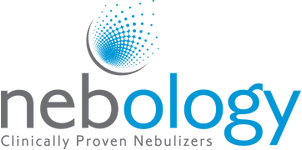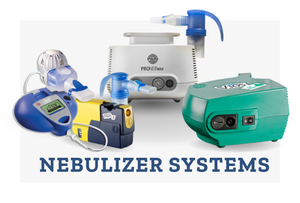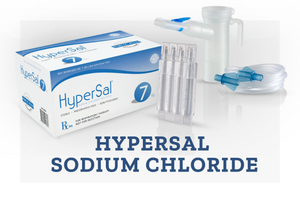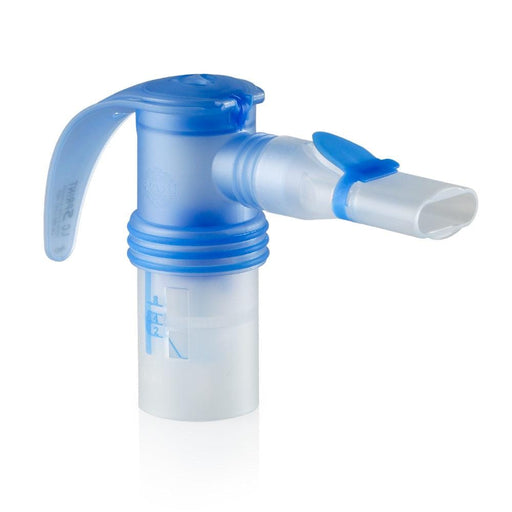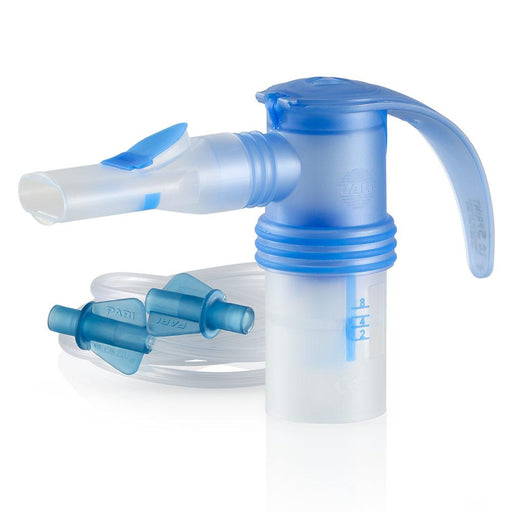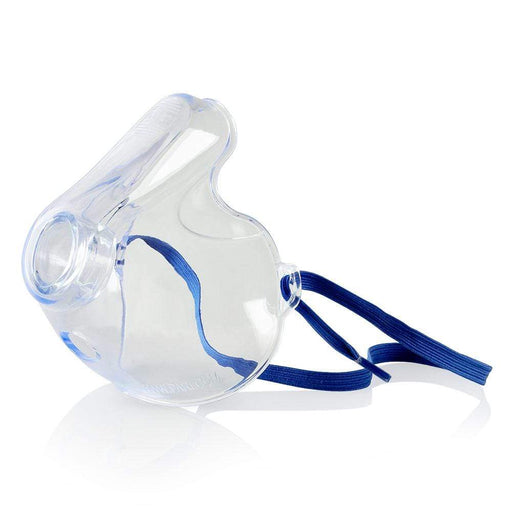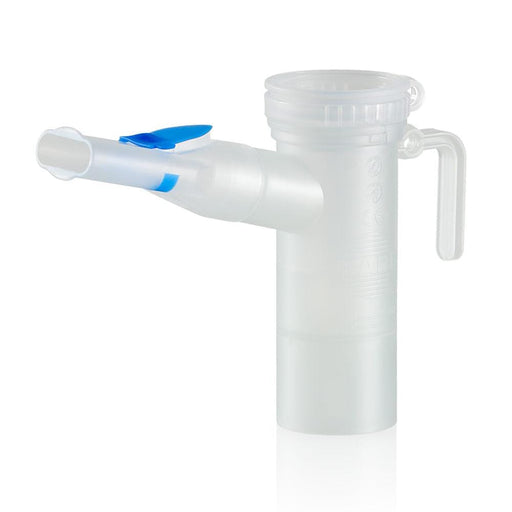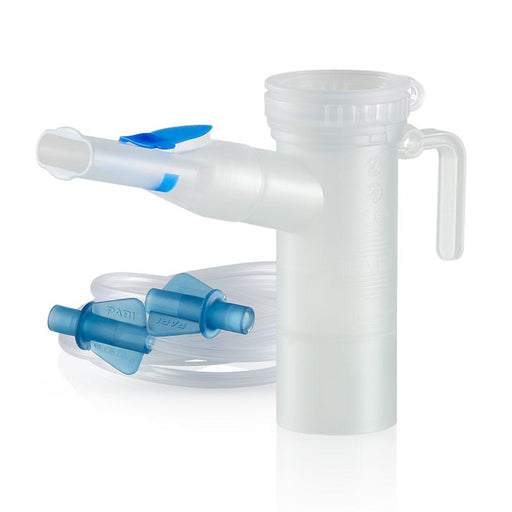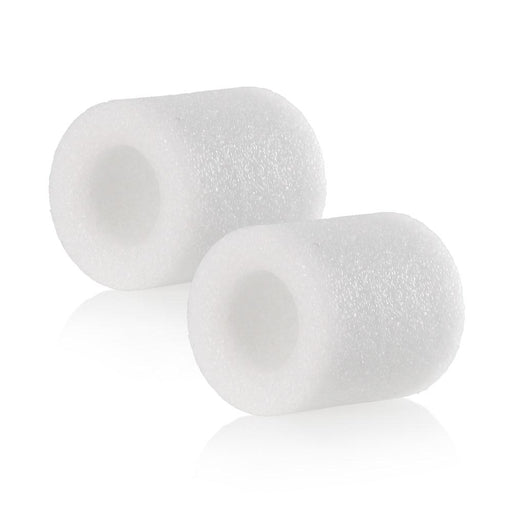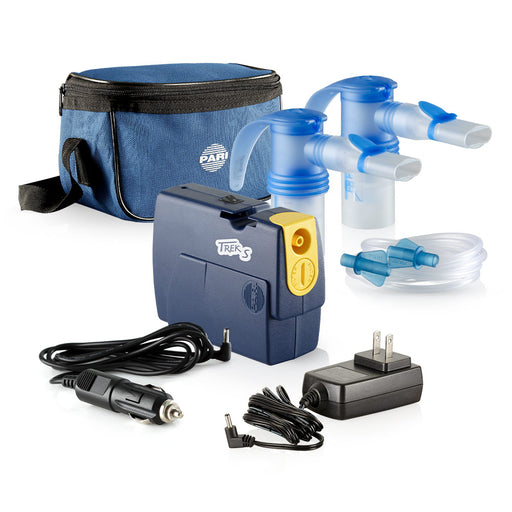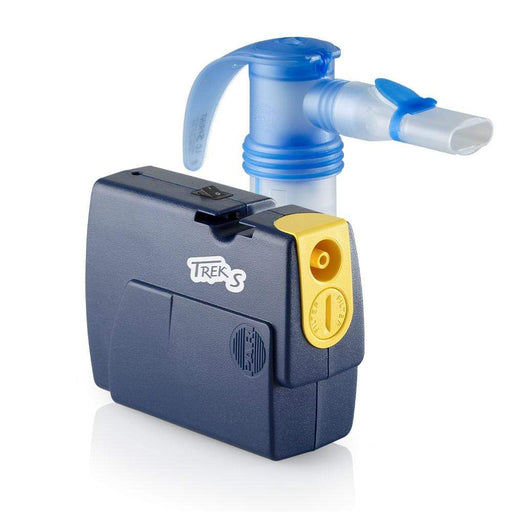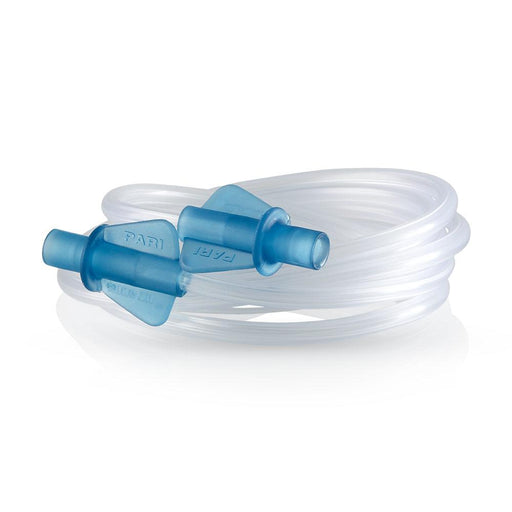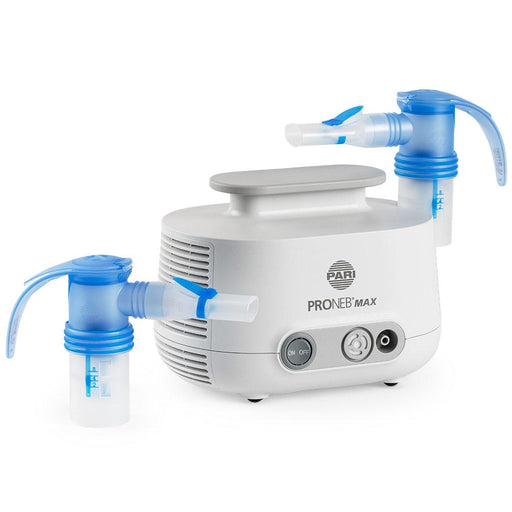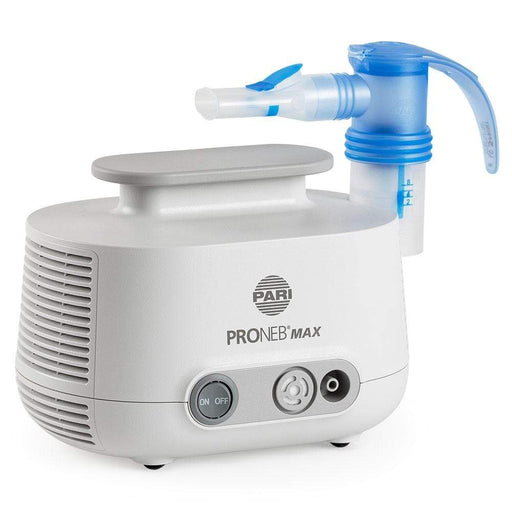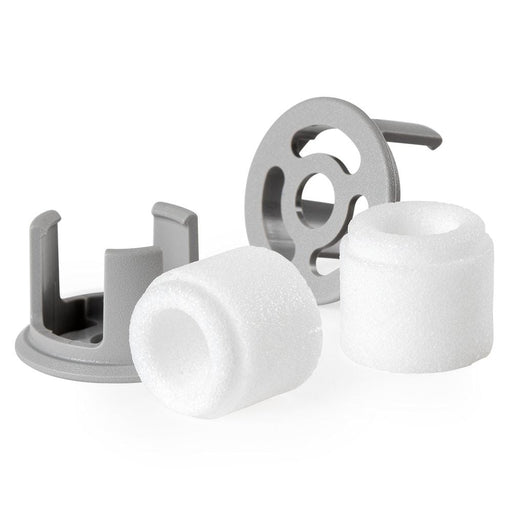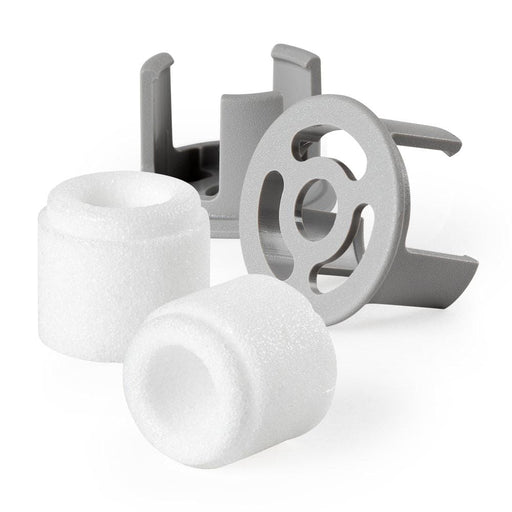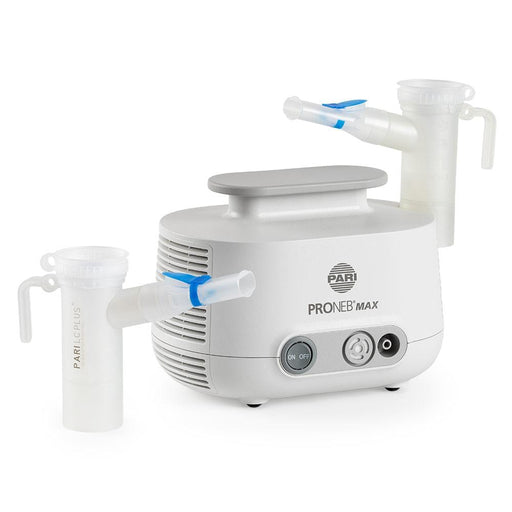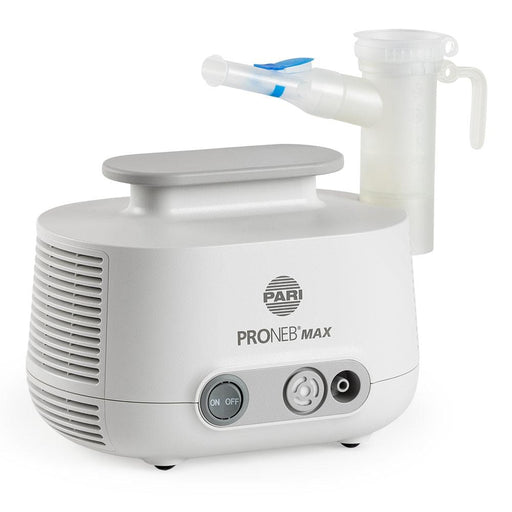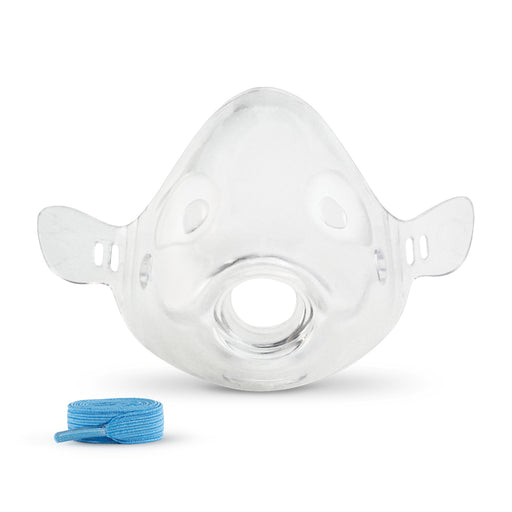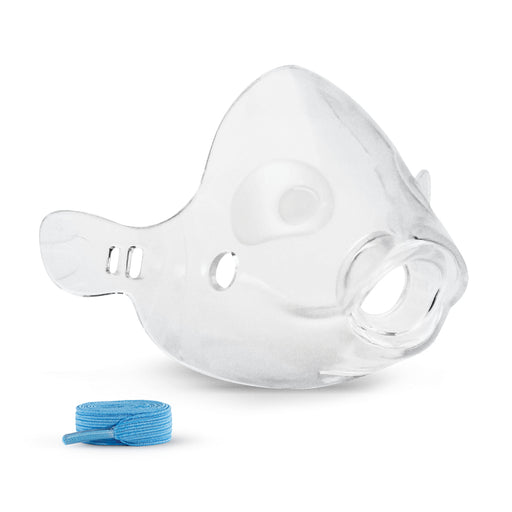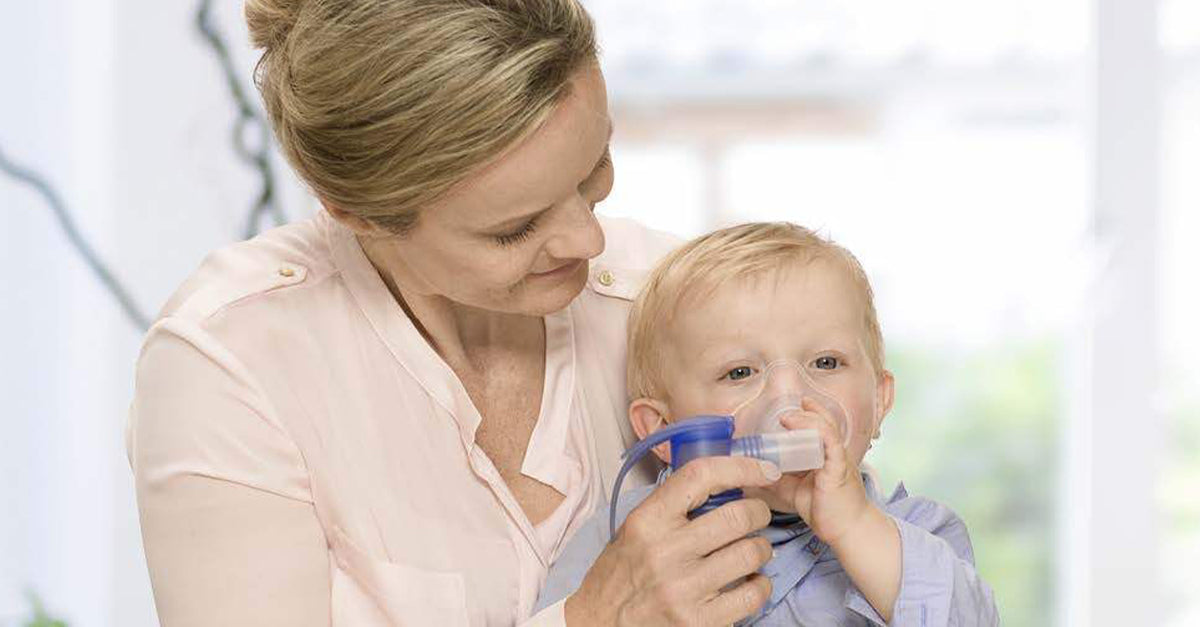
RSV & Babies with Asthma: Protect Growing Lungs
Respiratory Syncytial Virus (RSV) may trigger asthma or wheezing in babies. Using nebulizers for infants with asthma and RSV can help manage these respiratory flare-ups.
In the United States alone, RSV sends more than two million children younger than the age of five to the doctor each year, according to the Centers for Disease Control and Prevention (CDC). Between 58,000 and 80,000 children in this age group are also hospitalized with an RSV infection. The CDC also says that virtually all children will experience an RSV infection by the time they are two years old. Out of every one hundred babies, one to two will develop RSV and require hospitalization.
Some children are at greater risk for developing RSV, like infants, for example, especially those who are six months old or younger. Research suggests that babies with asthma are also at greater risk for developing RSV.
In babies with asthma, an RSV infection can trigger asthma. In fact, viruses (like the virus that causes RSV) are the number one cause of acute asthma episodes in babies younger than six months old, according to the Asthma and Allergy Foundation of America (AAFA).
About RSV
This common airborne virus causes infections of the respiratory tract. People with RSV will experience mild, cold-like symptoms, and most patients recover within a week.
The virus that causes RSV spreads through respiratory droplets. Someone infected with the virus can spread it when they cough or sneeze, kiss another person, or touch a surface after getting it on their hands. RSV can enter a person’s body when they touch a surface or breathe in the virus from the air. Symptoms typically appear four to six days after exposure to the virus.
Babies infected with RSV almost always show symptoms. In very young infants, especially those younger than six months, symptoms of RSV include:
- Runny nose
- Decrease in appetite
- Coughing
- Sneezing
- Fever
- Wheezing
In most cases, the infection will cause only mild symptoms, cold-like symptoms. Sometimes the viral infection will cause severe illnesses, such as:
- Bronchiolitis: inflammation of the small airways (bronchioles) in the child’s lung
- Pneumonia: infection of the lungs
Asthma and Infants
Normally, air flows freely in and out of a person’s lungs. When they are having an asthma flare-up, however, the lining of the lungs swells while muscles around the airways tighten. Mucus can clog the baby’s tiny airways, making it difficult for them to breathe.
Signs and symptoms of an asthma attack in babies include:
- Fast breathing
- Working hard to breathe – look for flaring of the baby’s nostrils, skin sucking in between the baby’s ribs or at the top of the baby’s chest, and panting while the child is moving or playing
- Wheezing
- Coughing
- Difficulty sucking
- Tiredness
- Cyanosis – the skin on the infant’s fingertips, tongue, lips, and around the eyes changes color; skin turns gray or whitish on darker skin and bluish on babies with lighter skin tones
Healthcare providers treat infants with asthma with the same medications they prescribe for older children and adults, although the dosage is typically lower for babies. Infants often receive these asthma treatments from a nebulizer, which delivers a vaporized form of medication through a face mask. Using a nebulizer helps make it easier for babies to receive the benefits of the medication.
The Use of Nebulizers for Infants with Asthma and RSV
Healthcare professionals do not usually recommend nebulizer treatments for RSV. While the FDA has not approved any nebulized medications for the treatment of RSV, the symptoms of severe RSV such as wheezing respond to certain medications delivered via nebulizer.
In some cases, babies with RSV may receive nebulized medications when the tiny patients have a history of asthma or severe RSV. Some nebulized medications relax the muscles around the airway, thereby relieving the breathing problems associated with asthma when brought about by RSV.
An infant nebulizer allows the medication to go into the baby’s lungs, where it works to relieve symptoms. Because it delivers medications into the lungs, a nebulizer machine for kids makes treatment time effective. A nebulizer for infants uses masks and other equipment that can deliver medications effectively and comfortably. The nebulizer mask for infant patients allows babies to take in medication while breathing as they usually would.
For more information about RSV and babies with asthma, and the use of a nebulizer for kids, consult with your doctor or nebulizer professional.
SHOP CLINICALLY PROVEN NEBULIZER SYSTEMS & SUPPLIES
-
PARI LC Sprint Reusable Nebulizer Cup & Tubing: Speed & Comfort Combined
Original price $15.95 - Original price $15.95Original price$15.95$15.95 - $15.95Current price $15.95In stockOriginal price $15.95 - Original price $15.95Original price$15.95$15.95 - $15.95Current price $15.95 -
PARI LC Adult Aerosol Mask: Comfortable, Effective Medication Delivery
Original price $6.00 - Original price $6.00Original price$6.00$6.00 - $6.00Current price $6.00In stockOriginal price $6.00 - Original price $6.00Original price$6.00$6.00 - $6.00Current price $6.00 -
PARI LC Plus Reusable Nebulizer Cup & Tubing: Reliable Aerosol Delivery
Original price $15.95 - Original price $15.95Original price$15.95$15.95 - $15.95Current price $15.95In stockOriginal price $15.95 - Original price $15.95Original price$15.95$15.95 - $15.95Current price $15.95 -
Filters for PARI Vios, Ultra II, and Trek S System - 2 Per Package
Original price $9.45 - Original price $9.45Original price$9.45$9.45 - $9.45Current price $9.45In stockOriginal price $9.45 - Original price $9.45Original price$9.45$9.45 - $9.45Current price $9.45 -
PARI Trek S Portable Nebulizer System with LC Sprint: High-Quality On-the-Go Therapy
Original price $79.00 - Original price $189.00Original price$79.00 - $189.00$79.00 - $189.00Current price $79.00In stockOriginal price $79.00 - Original price $189.00Original price$79.00 - $189.00$79.00 - $189.00Current price $79.00 -
PARI Wing Tip Tubing: Secure, Tangle-Free Connection for Better Treatments
Original price $8.00 - Original price $8.00Original price$8.00$8.00 - $8.00Current price $8.00In stockOriginal price $8.00 - Original price $8.00Original price$8.00$8.00 - $8.00Current price $8.00 -
PARI PRONEB Max Nebulizer System with LC Sprint: Powerful & Efficient
Original price $99.00Original price $99.00 - Original price $99.00Original price $99.00Current price $84.99$84.99 - $84.99Current price $84.99In stockOriginal price $99.00Original price $99.00 - Original price $99.00Original price $99.00Current price $84.99$84.99 - $84.99Current price $84.99Sale -
Filters for PARI PRONEB Max System (2 Per Package): Clean, Efficient Treatments
Original price $9.95 - Original price $9.95Original price$9.95$9.95 - $9.95Current price $9.95In stockOriginal price $9.95 - Original price $9.95Original price$9.95$9.95 - $9.95Current price $9.95 -
PARI PRONEB Max Nebulizer System with LC Plus: Effective Heavy-Duty Therapy
Original price $99.00Original price $99.00 - Original price $99.00Original price $99.00Current price $84.99$84.99 - $84.99Current price $84.99In stockOriginal price $99.00Original price $99.00 - Original price $99.00Original price $99.00Current price $84.99$84.99 - $84.99Current price $84.99Sale -
PARI Bubbles Pediatric Aerosol Mask: Gentle, Fun Treatments for Kids
Original price $5.95 - Original price $5.95Original price$5.95$5.95 - $5.95Current price $5.95In stockOriginal price $5.95 - Original price $5.95Original price$5.95$5.95 - $5.95Current price $5.95
